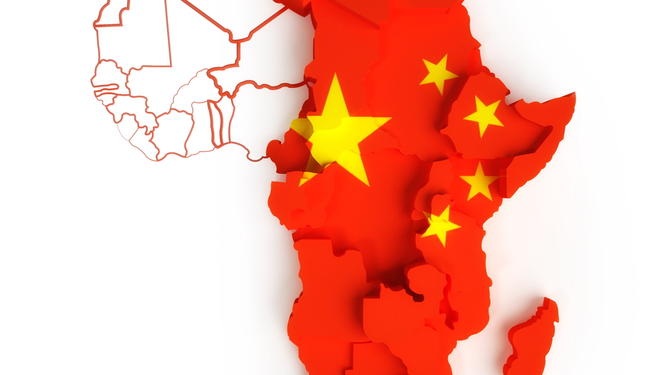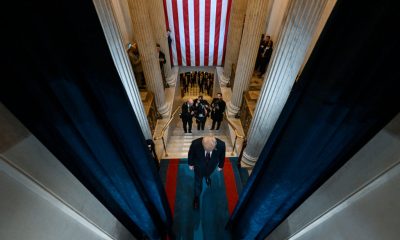Development
Expert Analysis: Breaking Down The China’s Africa Schemes

By Reinhard Asamo
China’s Africa Strategy
Decades ago, China influence in Africa was limited. Its aid influence were highly significant and its diplomats relatively unskilled. And many Chinese were unsure about their country’s role as an International actor in the International system. In many instances, China did very little rather than defending core interest like “one China”.
Recently, However, strong economic growth , a more sophisticated generation of Chinese leaders , better scholarship from Chinese government to Africans and a domestic population more confident of china as a global actor have given China a more proactive approach in global politics.
Chinas motives are clear: they are looking for new suppliers for their industries raw materials. Its exporters want market and their governments want support in International Organizations and its propaganda to counter the US influence in the global politics. Africa is therefore a good ground for these strategies. In fact, the whole issue for the Chinese scramble is purely a resource grab. Chinese growth coupled with dwindling oil and mineral deposits is a major factor in the scramble for the African continent. China is the largest consumer of the petroleum product and natural gas and other minerals like copper, cobalt and natural gas.
Chinas motives are clear: they are looking for new suppliers for their industries raw materials. Its exporters want market and their governments want support in International Organizations and its propaganda to counter the US influence in the global politics. Africa is therefore a good ground for these strategies. In fact, the whole issue for the Chinese scramble is purely a resource grab. Chinese growth coupled with dwindling oil and mineral deposits is a major factor in the scramble for the African continent. China is the largest consumer of the petroleum product and natural gas and other minerals like copper cobalt and natural gas.
In the coming years, China domestic oil production will diminish and this might make it likely be the global consumer of such products. China has no strategic oil reserve unlike the United States. That is the reason China has a lot of interest in Nigeria, Sudan, Angola, Gabon and Kenya. China imports about 28% of its oil products and gas from Sub Sahara Africa compared to 15% of the United States.
In the coming years, China domestic oil production will diminish and this might make it likely be the global consumer of such products. China has no strategic oil reserve unlike the United States. That is the reason China has a lot of interest in Nigeria, Sudan, Angola, Gabon and Kenya. China imports about 28% of its oil products and gas from Sub Sahara Africa compared to 15% of the United States.
However, China’s Africa strategy is more than resources but also to open new markets for their products. We have seen Kenyan market flooded with sub standards goods thereby creating a crowding effect for the local goods and services. Ethiopia for example has 90% of the market composed of Chinese products.
Sadly, Chinas unparalleled competitiveness in the developed International Markets is hurting Africa’s economies especially in the textile industry. African leaders are actually treating China as a global power in the Continent.
China is determined to establish long term relationships with the Africa’s elite. These are through exchange programs like scholarship. It is therefore not surprising that Chinese language is to be taught in Kenya alongside the English language. Chinese medical doctors train African ones and provide free medical equipment to African counties. On the economic front, China has opened many investment and trade promotion centers to promote trade with the African continent. The Chinese has created special funds and have reduced bottlenecks for the Chinese investors.
This is aimed at encouraging investment among its people. China uses summits and conferences to reach the African leaders. China view Africa as a market for its arms. Chinese sale of arms to Africa is second to Russia. This is compounded by the fact they don’t lecture African countries on good governance and democracy. Chinese telecommunication giant Huawei for example has huge contracts to provide mobile services in countries like Kenya, Nigeria and Zimbabwe. President Mugabe for example refers to china “My friend number one” Just because they don’t lecture Africans on the need to inculcate democratic principles and uphold Human Rights. The same sentiments are shared by President Kagame and Omal EL Bashir of Sudan. In Africa where the rule of law often doesn’t exist, China’s state led business model could prove a disaster for a continent that is still left with fragile pseudo democracies with no strong civil societies and non-state actors to oversight the excesses of the governments.
In this fragile environment, Chinese influence could complicate democratic consolidation and good governance. Chinas unwillingness to put any conditions to its assistance to African countries could further jeopardize International efforts to promote good governance. China has always used its Veto power at the UNSC to thwart efforts meant at imposing sanctions on states that are considered rogue. Africa will therefore provide a test whether china is a world power able to exert influence beyond its borders.
There is increasing Chinese participation in the energy and resource sectors particularly in fragile states such as Sudan, Angola and DRC. This is linked to attempts by some fragile states to evade pressure by western donors and NGOs to promote more transparent and better governance. Chinese aid is growing throughout the region, particularly in recent years, and appears to be carefully targeted to complement its commercial activities, Including in fragile states.
While these major policy challenges are clear, important key knowledge gaps exist which need to be filled if policy responses are to be appropriately nuanced for Individual country circumstances. The major knowledge gaps are with regard to:
* The need for baseline studies to assess the changing future impact of China on SSA.
* Analyses of the determinants of SSA competitiveness and the steps required to enhance productivity (for example, in clothing, textiles, footwear and furniture, as well as in export-oriented food crops);
* A more thorough assessment of indirect impacts of China’s trade on SSA, facilitating the development of appropriate policies for providing special and differential treatment to low income SSA economies in global markets;
* Determining the impact of China on consumer welfare, income distribution and absolute poverty levels in SSA, through an analysis of the consumer benefits derived from cheaper imports, and the distributional implications of a switch in specialization away from labor-intensive manufactures to capital intensive commodities;
* Distinguishing generic from sub-regional and country-specific impacts, aiding the classification of different types of SSA economies;
* Identifying likely future areas of threat and opportunity;
This growing Chinese presence raises major policy challenges for SSA if the manifold opportunities are to be grasped and the threats minimized:
* It poses particular threats to the manufacturing sector. Here the outlook is not entirely bleak, but SSA countries need to take explicit steps to counter act the dangers posed to existing and future capabilities in industry.
* Although the commodity boom favors some SSA economies, it poses very severe problems of economic management. Poorly-handled, a resource boom can easily become a resource-curse. Much can be learned from the experience of other countries (including in SSA) in handling these resource booms.
* Notwithstanding the welfare gains to the poor from lower import prices, the expansion of capital-intensive mineral production and the decline of labor – intensive manufactures pose severe challenges for poverty-alleviation and income distribution. There is, moreover, the additional problem that resource-production is closely associated with violence, corruption and fragile states. Policies to ameliorate these potential adverse poverty-related impacts need to be addressed.
* Linked to this, China has actively forged closer links with fragile states and this has undermined attempts by the global community to enhance transparency and better governance. There is also emerging evidence that attempts to foster better corporate and environmental governance are also being undermined by China’s presence in some SSA countries.
* African economies are being pulled in different directions with regard to their linkages with other economies. One pressure is to sustain historical links with the EU and North America, cemented by various preferential trading agreements. Another pressure is to strengthen links with other SSA economies, particularly in southern Africa. A third pressure is to enhance links with Asia in general, and China in particular.
Scarce administrative and strategic capabilities may require SSA economies to choose how they respond to these various pulls. There are strong arguments for a concerted ‘look East’ policy.
* The key capability which SSA economies require is the development of dynamic capabilities to scan changing environments, to develop appropriate strategic responses and to implement these strategies effectively. Unless these capabilities are built – in government, in the corporate and farming sectors, and in civil society – the opportunities offered by Chinese growth may be overwhelmed by the threats which are raised. This applies particularly to emerging sectors of Chinese demand (for example, imports of food products).
The writer Is an economist by profession.
Twitter : @Asamoh_
Disclaimer: This article expresses the author’s opinion only. The views and opinions expressed here do not necessarily represent those of Kenya Insights or its Editors. We welcome opinion and views on topical issues. Email:[email protected]
Kenya Insights allows guest blogging, if you want to be published on Kenya’s most authoritative and accurate blog, have an expose, news TIPS, story angles, human interest stories, drop us an email on [email protected] or via Telegram
-

 Business2 weeks ago
Business2 weeks agoEastleigh Businessman Accused of Sh296 Million Theft, Money Laundering Scandal
-

 Investigations1 week ago
Investigations1 week agoInside Nairobi Firm Used To Launder Millions From Minnesota Sh39 Billion Fraud
-

 Business1 week ago
Business1 week agoMost Safaricom Customers Feel They’re Being Conned By Their Billing System
-

 News1 week ago
News1 week agoUnfit for Office: The Damning Case Against NCA Boss Maurice Akech as Bodies Pile Up
-

 Business2 weeks ago
Business2 weeks agoEXPLOSIVE: BBS Mall Owner Wants Gachagua Reprimanded After Linking Him To Money Laundering, Minnesota Fraud
-

 News1 week ago
News1 week agoTax Payers Could Lose Millions in KWS Sh710 Insurance Tender Scam As Rot in The Agency Gets Exposed Further
-

 News1 week ago
News1 week agoPastor James Irungu Collapses After 79 Hours Into 80-Hour Tree-Hugging Challenge, Rushed to Hospital
-

 News1 week ago
News1 week agoDeath Traps: Nairobi Sitting on a Time Bomb as 85 Per Cent of Buildings Risk Collapse





























